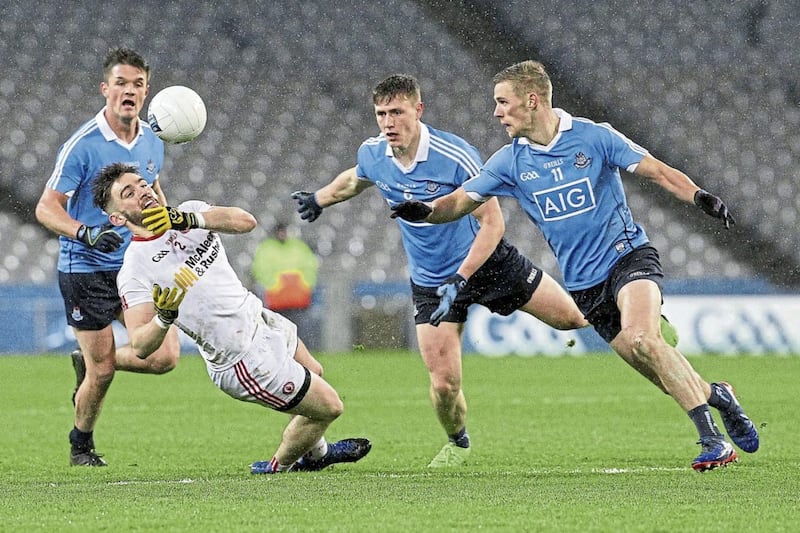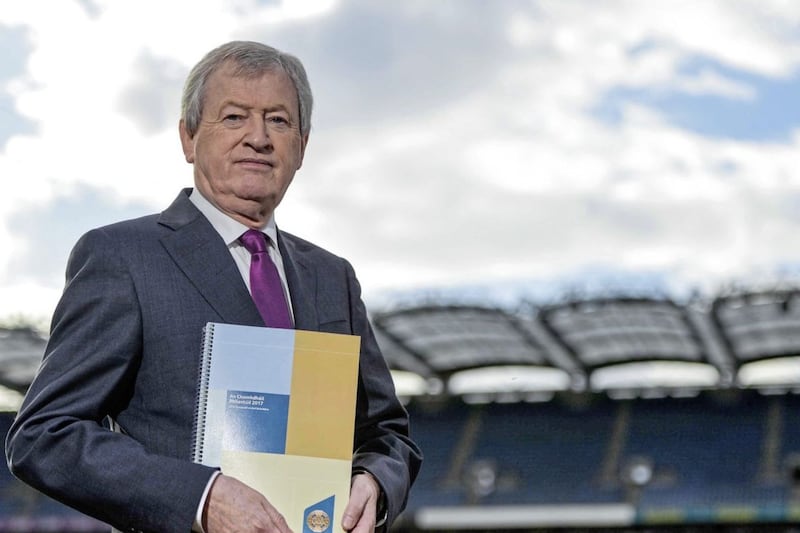LOVE it or loathe it, the black card is with us until 2020, said GAA Director General Padraic Duffy at the launch of his Annual Report yesterday.
Duffy, a consistent supporter of Gaelic Football’s much-criticized deterrent for cynical fouls, says he is fed up reading about it and wants people to accept that it improved the game.
“Every day, every week when you lift the paper you get one fella saying, 'Yes, the black card should go', somebody else saying, 'The black card should stay,” said Duffy yesterday.
“I understand all that. I would reiterate the point I made in the report about the black card.”
In his report Duffy points out that since the introduction of the black card in 2014, scores per-game have risen 10 per cent, the number of goals by 25 per cent and points by 7.5 per cent. Meanwhile, the number of free-kicks awarded per game has fallen “by almost 13 per cent”.
“I do understand and accept that there have been some poor decisions and interpretations of the rules at all levels. I'm not just talking about in Croke Park,” Duffy added.
“But the facts are since the black card came in, the average score per game is higher, the number of fouls and frees awarded per game is lower. They're facts.
“I do accept there have been some poor decisions and the referees accept that. I'll come back to the point I made in the report. The key to this is, and referees, they'll get it in time, it's about deliberately pulling down a player and they have to be sure that it's deliberate.
“So there are difficulties around the interpretation of it but just because there's difficulties around a new rule you don't go and say, 'Right, we're going to dump it'. You've got to work it through.
“The next rule change year is 2020. That's three years and a reasonable amount of time to try and work on it and get it better and if in 2020 people say, 'No, it hasn't worked', I'll accept that, absolutely, but let's give it time. Just because of a few bad decisions... bad cases doesn't mean you go and change the law.”
Unusually, there was no reference to discipline in Duffy’s annual report this year. The Monaghan native feels things have improved on that front.
“I’m not saying we don’t have indiscipline any more,” he said.
“That’s not what I’m saying. I’m going to touch wood here and say that it has been better over a long period of time. That doesn’t mean you don’t have incidents that shouldn’t happen – of course you do – but players have better understanding.
“There’s a better understanding that at inter-county level if you commit an infraction TV cameras will capture it and so on – there’s a price to be paid. TV angles are better and there’s also a culture in the Association that indiscipline does damage the GAA.
“Is it better than it was 5-10 years ago? I’d say yes but the fact that I didn’t mention it was because, thankfully, there was no major incident that required commentary in the report.
“The report attempts to capture the issues that have been of main concern over the past year and I think it’s fair to say that indiscipline wasn’t a major concern. That doesn’t mean it’s not a problem, obviously it is.”





